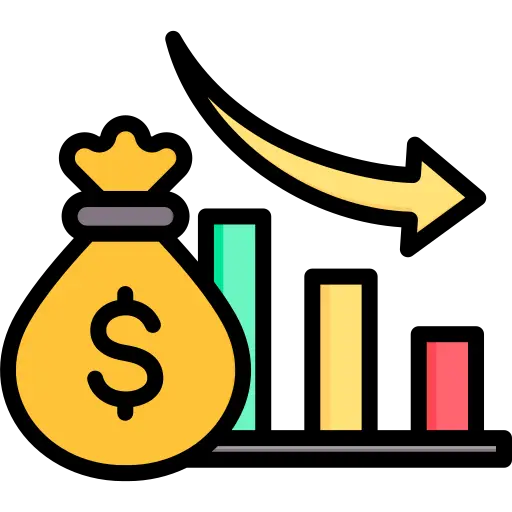Verified Insights
Precision-driven research you can trust. We uphold rigorous data validation processes to ensure every report is reliable and based on credible sources.
+91 9425150513 (Asia) support@24lifesciences.com
MARKET INSIGHTS
The global neuroscience antibodies and assays market was valued at approximately USD 2.53 billion in 2024. The market is projected to grow from USD 2.69 billion in 2025 to USD 3.84 billion by 2032, exhibiting a compound annual growth rate (CAGR) of 6.3% during the forecast period.
Neuroscience antibodies and assays are indispensable research tools used to detect, quantify, and visualize specific proteins, neurons, and other biomarkers within the complex nervous system. These reagents are fundamental for studying neurological function and dysfunction across various applications, including immunohistochemistry, western blotting, flow cytometry, and enzyme-linked immunosorbent assays (ELISA). Research targets a vast range of markers, from neurotransmitters and ion channels to glial cell proteins and synaptic proteins, enabling breakthroughs in understanding conditions like Alzheimer's, Parkinson's, and multiple sclerosis.
This robust growth is primarily fueled by the rising global prevalence of neurological disorders and significant public and private investment in neuroscience research. For instance, initiatives like the U.S. Brain Research Through Advancing Innovative Neurotechnologies (BRAIN) Initiative represent a major driver. The market is highly competitive, with key players like Thermo Fisher Scientific, Abcam, and Merck KGaA continuously expanding their portfolios through product innovation and strategic acquisitions to meet the specific and demanding needs of neuroscientists.
Increasing Global Burden of Neurological Disorders
The rising prevalence of neurological disorders such as Alzheimer's disease, Parkinson's disease, multiple sclerosis, and autism spectrum disorders is a primary driver for the neuroscience antibodies and assays market. As the global population ages and diagnostic capabilities improve, the demand for advanced research tools to understand disease mechanisms and develop novel therapies continues to escalate. Research funding from both public and private sectors is heavily concentrated in neuroscience, fueling the need for high-quality, validated antibodies and sensitive assays.
Technological Advancements in Research Tools
Innovations in antibody production, including recombinant antibody technologies and monoclonal antibody development, have significantly enhanced specificity and reproducibility, which are critical for neuroscience research. Concurrently, the development of sophisticated assays such as multiplex immunoassays, high-content screening, and advanced imaging techniques allows researchers to study complex neural pathways and protein interactions with greater precision. The integration of these tools is accelerating the pace of discovery in neurobiology.
➤ In 2023, the global market for neuroscience research tools was estimated to be valued at over $4.5 billion, with antibodies and assays constituting a substantial and growing segment of this total.
Furthermore, the growing emphasis on personalized medicine and biomarker discovery in neurology is driving the requirement for highly specific antibodies to identify and validate novel biomarkers, supporting the development of targeted diagnostics and therapeutics.
MARKET CHALLENGES
High Specificity and Validation Hurdles
A significant challenge in the neuroscience antibodies and assays market is the requirement for extreme specificity. Neuronal proteins often have numerous isoforms and post-translational modifications, making it difficult to develop antibodies that do not cross-react. The lack of standardized validation protocols across different laboratories can lead to irreproducible research results, creating skepticism and slowing down scientific progress. Ensuring antibody specificity for targets like ion channels, neurotransmitter receptors, and synaptic proteins remains a technically demanding and costly process.
Other Challenges
Cost and Accessibility of Advanced Tools
Sophisticated assays and high-quality, validated antibodies are often expensive, which can limit their adoption in academic labs and research institutions with constrained budgets. This creates a barrier to entry for smaller players and can concentrate advanced research capabilities within well-funded organizations.
Regulatory and Ethical Complexities
The use of animal-derived antibodies faces increasing ethical scrutiny and regulatory hurdles. Furthermore, research involving human neural tissue presents complex ethical and logistical challenges regarding sourcing and consent, which can impede the development and validation of new assays.
Stringent Regulatory Frameworks
The development and commercialization of research-use-only (RUO) antibodies and assays are subject to increasingly stringent quality control and regulatory requirements. Manufacturers must adhere to Good Manufacturing Practices (GMP) and provide extensive validation data, which increases time to market and operational costs. This regulatory burden can act as a significant restraint, particularly for smaller companies and startups aiming to introduce innovative products.
Market Consolidation and High Competition
The market is characterized by the presence of a few large, established players who hold significant market share. This high level of consolidation can create barriers for new entrants and can sometimes stifle innovation due to the dominant market position of incumbents who control key technologies and intellectual property.
Expansion into Neuroproteomics and Single-Cell Analysis
The burgeoning fields of neuroproteomics and single-cell analysis present substantial growth opportunities. There is a growing demand for highly multiplexed antibodies and ultra-sensitive assays capable of profiling protein expression and post-translational modifications at the single-cell level within complex neural tissues. Companies that can develop and provide robust toolkits for these advanced applications are well-positioned to capture a significant market segment.
Growing Demand in Emerging Markets
Increasing investment in life sciences research and healthcare infrastructure in emerging economies across Asia-Pacific and Latin America offers a considerable opportunity for market expansion. Governments in these regions are prioritizing neurological research, leading to rising demand for reliable research reagents and diagnostic tools, creating new avenues for revenue generation.
Collaborations with Pharmaceutical and Biotech Companies
There is a significant opportunity for antibody and assay providers to form strategic partnerships with pharmaceutical and biotechnology companies engaged in CNS drug discovery and development. These collaborations often involve co-development of companion diagnostics and require highly validated, proprietary research tools, representing a high-value segment of the market.
Segment Analysis:| Segment Category | Sub-Segments | Key Insights |
| By Type |
|
Consumables represents the leading segment due to their essential nature as recurrently purchased items in daily research workflows. This category includes antibodies, reagents, assay kits, and other disposable materials that are fundamental for conducting experiments, leading to consistent and high-volume demand. The segment's dominance is reinforced by the continuous need for replenishment across numerous research projects and diagnostic procedures. Ongoing innovation in assay development and the introduction of high-specificity antibodies further propel the growth and indispensability of consumables, making them the cornerstone of market activity. |
| By Application |
|
Pharmaceutical & Biotechnology Companies constitute the leading application segment, primarily driven by intensive research and development activities aimed at discovering novel therapeutics for neurological disorders. These organizations invest significantly in neuroscience antibodies and assays for drug target validation, biomarker discovery, and preclinical testing. The high-stakes nature of drug development, coupled with substantial R&D budgets, ensures a continuous and sophisticated demand for high-quality, validated research tools. This segment benefits from deep industry expertise and the critical need for reliable data to support regulatory submissions, cementing its dominant position. |
| By End User |
|
Research Laboratories are the predominant end-user segment, encompassing both academic institutions and dedicated research facilities. These laboratories are the primary consumers, utilizing antibodies and assays for fundamental neuroscience research, understanding disease mechanisms, and exploring novel biological pathways. Their sustained demand is fueled by a global increase in government and private funding for neurological research and a growing number of publications in the field. The segment's leadership is characterized by a broad base of users requiring a diverse portfolio of products for various experimental techniques, from basic immunohistochemistry to complex cellular assays. |
| By Technology |
|
Immunoassays stand out as the leading technology segment, with techniques like ELISA and Western Blot being cornerstone methods in protein detection and quantification. Their widespread adoption is attributed to their reliability, sensitivity, and relative ease of use, making them suitable for both routine and specialized applications in neuroscience. These methods are indispensable for validating antibody specificity, measuring biomarker levels, and conducting high-throughput screening. The versatility and proven track record of immunoassays in generating quantitative data support their continued dominance as a fundamental technological platform in neuroscience research and diagnostics. |
| By Specificity |
|
Monoclonal Antibodies lead this segment due to their superior specificity, consistency, and reproducibility, which are critical parameters in neuroscience research. The ability to produce an unlimited supply of identical antibodies ensures experimental reliability and reduces variability, a key requirement for publications and drug development. Their high affinity for single epitopes makes them ideal for precise target detection in complex samples like brain tissue. The growing emphasis on validated and highly specific research tools in the field strongly favors the adoption of monoclonal antibodies, driving their prominence in the market. |
Market Dominated by Established Life Science Giants and Specialized Innovators
The global Neuroscience Antibodies and Assays market is characterized by a competitive landscape featuring a mix of large, diversified life science corporations and specialized players dedicated to neurological research. The market is moderately concentrated, with the top five companies holding a significant revenue share as of 2024. Thermo Fisher Scientific stands out as a dominant force, leveraging its extensive portfolio of research reagents, advanced instruments, and global distribution network to serve a broad customer base in academia, pharmaceuticals, and biotechnology. Other major players like Merck (including its MilliporeSigma division) and Abcam also command substantial market presence due to their deep product catalogs, strong brand recognition, and continuous innovation in antibody validation and assay development. These leaders compete on factors including product quality, specificity validation, technical support, and the breadth of their offerings for studying various neurological targets.
Beyond the leading multinationals, several companies have carved out significant niches by focusing on high-quality, well-characterized antibodies and specialized assay kits for neuroscience. Bio-Rad Laboratories is a key player known for its instrumentation and immunoassay expertise. Cell Signaling Technology (CST) has built a strong reputation for its high-validation standards and phospho-specific antibodies critical for signaling pathway research. Specialized providers like BioLegend, Rockland Immunochemicals, and Santa Cruz Biotechnology are recognized for their contributions to specific areas of neurobiology, such as neuroinflammation or neural cell markers. Emerging and agile companies, including GenScript, are also gaining traction by offering custom antibody services and catalog products tailored to the evolving needs of neuroscientists, intensifying competition in this dynamic research field.
List of Key Neuroscience Antibodies and Assays Companies ProfiledRockland Immunochemicals, Inc.
Santa Cruz Biotechnology, Inc.
F. Hoffmann-La Roche Ltd
Siemens Healthineers
PerkinElmer, Inc.
Agilent Technologies, Inc.
Becton, Dickinson and Company
The global Neuroscience Antibodies and Assays market is on a significant growth trajectory, with its value projected to rise from US$ 2529 million in 2024 to US$ 3835 million by 2032, representing a compound annual growth rate (CAGR) of 6.3%. This substantial expansion is primarily driven by the increasing global incidence of neurological disorders such as Alzheimer's disease, Parkinson's disease, and multiple sclerosis. The demand for advanced research tools like antibodies and assays is escalating as the pharmaceutical and biotechnology industries intensify their efforts to develop novel therapeutics for these complex conditions. Furthermore, sustained and growing investments from both public and private entities into neuroscience research are providing a solid foundation for market development, enabling more sophisticated and high-throughput discovery efforts.
Other TrendsProduct Segmentation and Regional Dynamics
The consumables segment is a critical and dominant component of the market, expected to reach a multi-million dollar valuation by 2032. This segment's growth is fueled by the recurring nature of purchases required for continuous research and diagnostic activities. Geographically, North America, particularly the United States, holds a major share of the market, attributed to its well-established research infrastructure, high healthcare expenditure, and significant presence of leading pharmaceutical companies. However, the Asia-Pacific region, led by China, is anticipated to register the highest growth rate during the forecast period. This surge is due to increasing government funding for life sciences, a growing biotechnology sector, and rising awareness of neurological health issues.
Competitive Landscape and Strategic DevelopmentsThe global market features a competitive landscape with key players including Thermo Fisher, Abcam, Bio-Rad, Merck, and Cell Signaling Technology, among others. In 2024, the top five companies collectively held a significant portion of the total market revenue. These industry leaders are continuously engaged in strategic initiatives such as new product launches, technological advancements in assay sensitivity and multiplexing capabilities, and geographic expansion to strengthen their market positions. The end-user base is diversified across pharmaceutical and biotechnology companies, academic and research institutes, and hospitals and diagnostic centers, each driving demand for specific and reliable antibody-based tools for drug discovery, basic research, and clinical diagnostics.
Regional Analysis: Neuroscience Antibodies and Assays MarketEurope
Europe represents a highly significant and mature market for neuroscience antibodies and assays, characterized by a strong collaborative research landscape. The region benefits from substantial multinational funding initiatives, such as those from the European Union, which promote large-scale collaborative research projects into brain function and disease. Countries like Germany, the United Kingdom, and France are key contributors, hosting renowned research institutes with a strong focus on neuroimmunology, neurodevelopment, and psychiatric disorders. The market is characterized by a demand for high-quality, validated reagents that meet rigorous standards, often driven by the region's emphasis on reproducible science. While the pace of adoption for very novel technologies can be slightly more measured compared to North America, there is a deep and sustained demand for a broad portfolio of well-characterized antibodies and reliable assay kits to support the region's extensive basic and translational neuroscience research.
Asia-Pacific
The Asia-Pacific region is the fastest-growing market for neuroscience antibodies and assays, driven by rapidly expanding government and private investments in life sciences research. Countries such as China, Japan, and South Korea are aggressively building their biomedical research capabilities, with neuroscience being a prioritized area. This growth is fueled by increasing awareness of the socioeconomic burden of neurological disorders and a growing base of research talent. The market dynamics are diverse, ranging from a demand for cost-effective, high-volume basic research reagents to a growing interest in advanced tools for drug discovery. Local manufacturers are also becoming increasingly prominent, offering competitive alternatives and contributing to a more dynamic and price-sensitive market landscape. The region presents significant long-term growth potential as its research infrastructure continues to mature.
South America
The market in South America, while smaller in scale, is developing steadily, with Brazil and Argentina being the primary centers for neuroscience research. Growth is largely supported by increasing government initiatives aimed at bolstering scientific research and addressing local health challenges. The demand is primarily for foundational research tools and antibodies for studying infectious diseases affecting the nervous system, as well as prevalent neurological conditions. Research funding constraints can sometimes limit the adoption of the most expensive, high-end assay platforms; however, there is a consistent need for reliable and validated antibodies and standard ELISA or Western blot kits. Collaborations with North American and European institutions also help drive awareness and usage of advanced research tools in key academic centers across the region.
Middle East & Africa
The market for neuroscience antibodies and assays in the Middle East and Africa is nascent but shows pockets of growth, particularly in more developed economies within the Gulf Cooperation Council (GCC) countries and South Africa. Investment in specialized healthcare and research centers, often with a focus on genetic neurological disorders prevalent in the region, is creating a baseline demand. The market is characterized by a reliance on imports from international suppliers, with demand concentrated in major academic medical centers and a few specialized research facilities. While the overall volume is currently low compared to other regions, strategic investments in building research infrastructure suggest a potential for gradual market expansion over the coming years, particularly for essential research reagents.
This market research report offers a holistic overview of global and regional markets for the forecast period 2025–2032. It presents accurate and actionable insights based on a blend of primary and secondary research.
✅ Market Overview
Global and regional market size (historical & forecast)
Growth trends and value/volume projections
✅ Segmentation Analysis
By product type or category
By application or usage area
By end-user industry
By distribution channel (if applicable)
✅ Regional Insights
North America, Europe, Asia-Pacific, Latin America, Middle East & Africa
Country-level data for key markets
✅ Competitive Landscape
Company profiles and market share analysis
Key strategies: M&A, partnerships, expansions
Product portfolio and pricing strategies
✅ Technology & Innovation
Emerging technologies and R&D trends
Automation, digitalization, sustainability initiatives
Impact of AI, IoT, or other disruptors (where applicable)
✅ Market Dynamics
Key drivers supporting market growth
Restraints and potential risk factors
Supply chain trends and challenges
✅ Opportunities & Recommendations
High-growth segments
Investment hotspots
Strategic suggestions for stakeholders
✅ Stakeholder Insights
This report is designed to support strategic decision-making for a wide range of stakeholders, including:
Pharmaceutical and biotech companies
Medical device and diagnostics manufacturers
Healthcare providers and hospital systems
Contract research and manufacturing organizations
Investors, consultants, and policy makers
-> Global neuroscience antibodies and assays market was valued at USD 2.53 billion in 2024 and is expected to reach USD 3.84 billion by 2032.
Which key companies operate in Global Neuroscience Antibodies and Assays Market?
-> Key players include Thermo Fisher, Abcam, Bio-Rad, Merck, Cell Signaling Technology, Genscript, and Rockland Immunochemicals, among others.
-> Key growth drivers include rising prevalence of neurological disorders and increased neuroscience research funding.
-> North America holds the largest market share, while Asia-Pacific shows fastest growth.
-> Emerging trends include advanced biomarker discovery and high-throughput screening technologies.
Our Clients
“The data provided by 24LifeScience was clear, well-organized, and useful for internal strategy planning. It helped us understand the competitive landscape more effectively.”
“We used one of their market overview reports for early-stage feasibility work. It gave us a helpful snapshot of current trends and key players in our therapeutic area.”
“I appreciated the team’s responsiveness and willingness to adjust the scope based on our feedback. The final report was aligned with our expectations and timelines.”
“Their custom report on clinical trial trends was a helpful reference as we explored new indications."
“As someone working on early product planning, I found their therapeutic area briefs quite useful. The information was presented in a way that made it easy to extract key takeaways.”
“We didn’t need anything overly complex—just solid, dependable data. 24LifeScience delivered exactly that, without unnecessary fluff.”
“Their reports gave us a good foundation to start our own market assessment. While we supplemented it with other data, this was a great starting point.”
“I’ve used a few of their reports for academic and grant writing purposes. They’re generally well-cited and reliable for understanding market scope.”
At 24LifeScience, we combine domain expertise with dependable research delivery. What truly differentiates us isn't just what we do — it's how we do it. Our clients trust us because we offer consistency, security, value, and most importantly, insight that drives action.

Precision-driven research you can trust. We uphold rigorous data validation processes to ensure every report is reliable and based on credible sources.

We uphold rigorous data validation processes to ensure every report is reliable, up-to-date, and based on credible sources.

24LifeScience powers research for top firms in 20+ nations.Chosen by leading life sciences companies worldwide.

We offer competitive pricing models that align with your project scope — no hidden charges, no lock-in. Tailored pricing for every scale and need.

8–10+ years of life sciences expertise turned into strategic insights.We don’t just summarize data we contextualize it.

Whether it's a ready-made report or a custom project, we deliver within the promised timeline With real-time updates